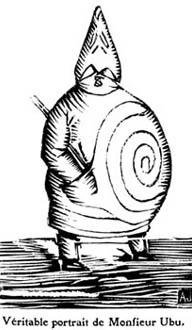User Login |
Starhopping With Grant"It wasn't the hash," he says. They were really aliens, and they had so much to tell him. Grant Morrison has been beamed from a Nepalese rooftop into the fifth dimension, where amoebic creatures have summoned him to reveal an arc, snaking off into the electric aether of some incomprehensible Elsewhere. It is the progression of time -- all of it, viewed from above as we would see narrative on a page, able to access the story at any point in its continuity. As a writer of comic books, this is an idea that has occurred to him naturally. Who reads us, as we observe the goings-on of the second dimension? He got his answer. Then, he was staring at his coffee at the foot of the Himalayas once more. What does one do to unpack such an experience? One writes The Invisibles, a weirdo superhero biopic intended to be a densely encoded occult script to catapult its readers into four-dimensional awareness; a key to open the door to blob land. And who spends time reading something so bizarre? The Wachowski brothers, who took the story of a prodigy initiate into a raggedy band of psychic warriors and ran with it. And thousands of other adoring fans, a couple hundred of whom are seated around me in a spartanly-decorated meeting room at the New York Comic Convention. Grant is telling us about his creative process, which is something like dope-smoking at Hogwarts meets teatime in Hell. Does he care if we believe him? No; he's too busy having fun with his ideas. His charm is unexpected. Alan Moore, a close analog in the alternative-comics-writing microcosm both for thick brogue and philosophic bent is an acrimonious recluse who lurks somewhere in the wilds of Scotland, far from the reach of the fanboy masses, only to emerge to tromp around in front of cameras wearing steel boots and a scowl, yelling about anarchism. Morrison, however, is almost too fabulous for Earth. I have heard him speak at conventions five or six times, and on every occasion I have come away feeling supercharged. The impression that lingers in his wake is that the rest of us are squandering our cognitive energies while he goes gallavanting off into the feral, hyper-erotic carnival that is his own mind, pencil in hand. "I've gotten to the point where I'm living in fiction. If I want to see something, I paint it. If I want to read something, I write it. If I want to hear something, I record it." Coming out of anyone else's mouth, "I'm living in fiction" would seem a contrivance. But he means it literally. Where the eccentricity ends and reality begins is hard to gauge. A favorite story of his is to recount how the protagonists of The Invisibles incurred into his own life. He came to think that he could influence the course of his own reality by experimenting on his fictional avatars. He rescued his bald counterpart from the torture chamber where he was trapped, which he figured was what had been making him chronically, dangerously ill in real life. He got better. He bathed the character in riches and women. Morrison got laid. The experiment does not end with The Invisibles. Every Morrison work reads like an opus, and every opus is one more layer sheafed off the quantum onion that is his creative faculty. It would be very easy to discount him as a simple weirdo lost in his own mythmaking. But what is our romanticized ideal of an artist at work? A conduit at wander amongst the muses. Most everyone who creates things has something to learn from the sense of immediate involvement be brings to his craft. He is involved with a hundred separate lines of inquiry at once, synthesizing meaning as he goes, for our benefit, because he feels it is of immediate importance to our growth as a specie. One gets the spooky impression that, as he rattles off theories about consciousness, human evolution, our spiritual futures, he is predicting the future; as he constructs elaborate allegories for the human condition with talking fish, dark gods, time-traveling disco supermen from the 70's, he is descibing us more accurately than any historian or biographer ever could. The suspicion creeps that he is telling a truth no one else has the scope of vision to recognize. In the end, what matters more: whether or not we are really watched over by cosmic phlegm, or that Grant believes it and what springs from that belief is the most interesting, sophisticated, engrossing comics narrative in print? Ultimately, don't we sometimes need our art to come from individuals possessed of awareness as alien to our own as possible? And maybe, just maybe, we live in a universe that is interesting enough for someone like Grant to be right after all.
- Matt
Videos of Grant:
At the Comic Con: http://www.youtube.com/watch?v=38yk7vbzHuI http://www.youtube.com/watch?v=0HG-1dpMveM
At his weirdest, explaining the aliens: http://www.youtube.com/watch?v=5gHOh4Cgkn0
If you think he's a nutcase, I understand why, and largely agree, but he's still fascinating and awesome like some wacky uncle who let you play Mortal Kombat for the first time against your parents' will.
categories [ Poetry Reviews ]
login or register to post comments | printer friendly version
|
